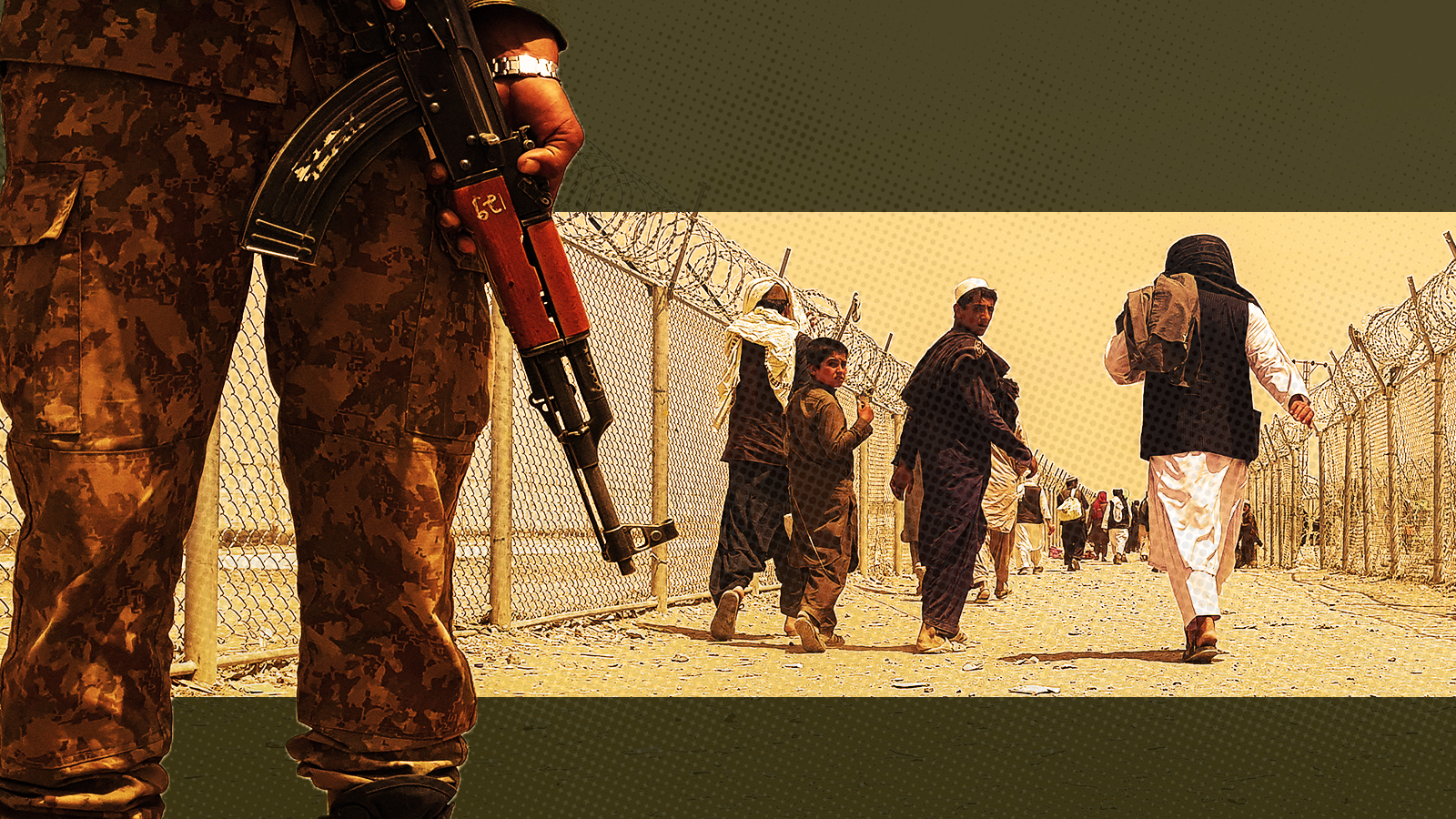The chaotic Afghanistan exit everyone should have seen coming


A free daily email with the biggest news stories of the day – and the best features from TheWeek.com
You are now subscribed
Your newsletter sign-up was successful
The conclusion of the long-since-lost U.S. war in Afghanistan is tragic for the many Afghans who will suffer under Taliban rule — particularly women, religious minorities, and those, like interpreters, who supported the American invasion and occupation (and who now should be welcomed to our country as refugees). But it is also basically what we should've anticipated for this moment. There were many signs the nation-building project was an irretrievable failure that would inevitably unravel.
The biggest piece of evidence in recent years was the Afghanistan Papers, the trove of documents published by The Washington Post in late 2019. The papers showed our civilian and military leadership habitually lied to the American people about their supposed progress in Afghanistan, "making rosy pronouncements they knew to be false and hiding unmistakable evidence the war had become unwinnable."
The Post's interviews with officials and military brass detailed our government's "botched attempts to curtail runaway corruption [and] build a competent Afghan army and police force." That corruption and incompetence became newly visible this past week, but it's neither new nor hitherto unknown. U.S.-supported Kabul was never a government capable of standing on its own.
The Week
Escape your echo chamber. Get the facts behind the news, plus analysis from multiple perspectives.

Sign up for The Week's Free Newsletters
From our morning news briefing to a weekly Good News Newsletter, get the best of The Week delivered directly to your inbox.
From our morning news briefing to a weekly Good News Newsletter, get the best of The Week delivered directly to your inbox.
And those papers weren't the only harbinger. Reports from the Special Inspector General for Afghanistan Reconstruction (SIGAR) sounded alarms on the fundamental weakness of the U.S.-backed government for years, as The Week's Ryan Cooper has noted. Reports from the Post in 2012 and The New York Times in 2015 revealed that corruption in the country was not only financial but moral in the most abhorrent way: Officials and members of the Afghan security forces participated in rampant sexual abuse of boys, which American soldiers were ordered to ignore so as not to offend allies in arms. (The Taliban, in a twist perhaps surprising to many westerners, banned the practice and punished it with execution until the U.S. invasion in 2001.)
I'll leave you with a brief but telling vignette. In 2018, 60 Minutes reported Americans had to take helicopters instead of driving from the U.S. Embassy to the airport in Kabul because the U.S. military — the most powerful military on the planet, which at that point had around 14,000 troops and another 10,000 contractors in Afghanistan — couldn't secure the route in between the compounds.
The route was two miles of straight road.
A free daily email with the biggest news stories of the day – and the best features from TheWeek.com
Bonnie Kristian was a deputy editor and acting editor-in-chief of TheWeek.com. She is a columnist at Christianity Today and author of Untrustworthy: The Knowledge Crisis Breaking Our Brains, Polluting Our Politics, and Corrupting Christian Community (forthcoming 2022) and A Flexible Faith: Rethinking What It Means to Follow Jesus Today (2018). Her writing has also appeared at Time Magazine, CNN, USA Today, Newsweek, the Los Angeles Times, and The American Conservative, among other outlets.
